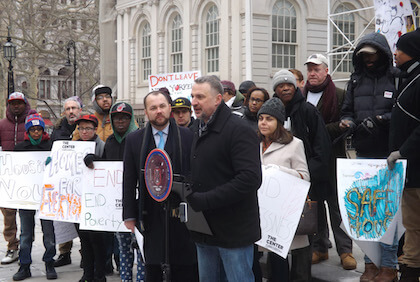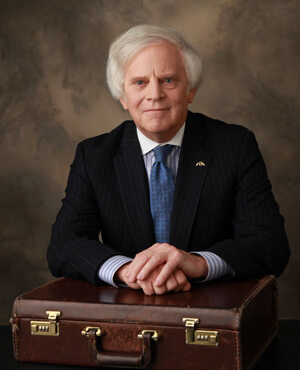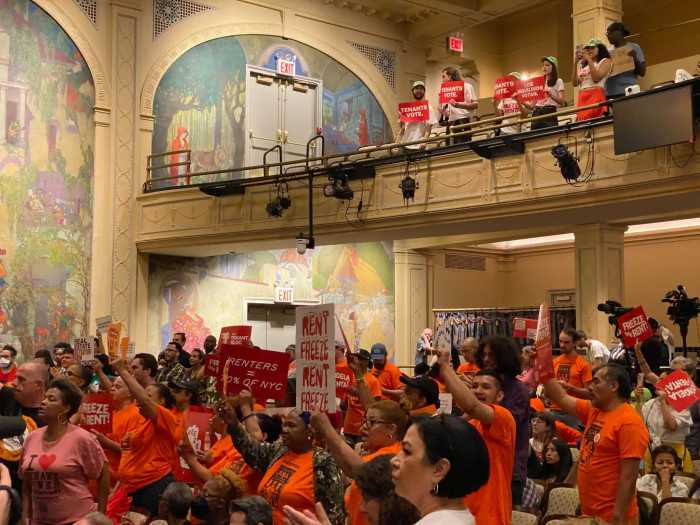City legislation that would expand the eligibility for rental assistance, food stamps, and other benefits for people with HIV may be getting a new life after being dormant for years during the Bloomberg administration, according to City Council records obtained by Gay City News under the state open records act.
In an April 30 email from Dohini Sompura, a senior legislative financial analyst in the City Council’s Finance Division, to Ginny Shubert, a consultant with an expertise in developing and financing policies and programs that aid low income people, Sompura asked for an updated estimate of the cost of implementing HASA for All, city legislation that would allow more HIV-positive people access to the benefits administered by the HIV/ AIDS Services Administration (HASA).
Shubert sent Sompura a briefing document on multiple unmet needs of people with HIV, and they scheduled a phone conference for May 1. Sompura copied Crilhien Francisco, a City Council finance analyst who covers health matters, and he was expected to join the call.
Legislation rejected by Bloomberg, Quinn, gaining study, endorsements from Council, de Blasio administration
Sompura noted that the most recent estimate of the legislation’s cost was $80 to $100 million a year and she asked about Shubert’s method for estimating the cost saying she was “trying to work through this in a similar manner” to her estimate of the city’s “30 percent rent cap analysis.” (The rent cap provides a ceiling on the percentage of income that people with AIDS on public assistance pay in monthly rent.)
HASA, which is a unit of the city’s Human Resources Administration (HRA), grants benefits only to people who have an AIDS diagnosis. With the wider use of powerful anti-HIV drugs, fewer people with HIV progress to an AIDS diagnosis. The result has been that poor people with HIV who have a real need for the HASA benefits cannot get them because they are deemed too healthy. Some advocates say this has created a perverse incentive for people with HIV to not take anti-HIV drugs so they can qualify as a HASA client, with the consequence being that they are much sicker when they enroll at HASA.
Shubert’s analysis was that on any given night in New York City between 700 and 1,100 people with HIV were staying in a city shelter and that an estimated 4,000 to 6,000 people with HIV could benefit from the additional HASA services. The agency currently serves roughly 32,000 people with AIDS and another 10,700 of their family members. Adding another 6,000 would increase the HASA caseload by about 19 percent.
HASA for All was first introduced in the City Council in 2007. It was opposed by Mayor Michael Bloomberg and then City Council Speaker Christine Quinn, an out lesbian who represented Chelsea, as too expensive. Seen as dead on arrival, the legislation received little attention even in the 2013 mayoral race.
It was reintroduced this year by Corey Johnson, the out gay, HIV-positive City Council member who represents what was Quinn‘s district. The bill has 36 co-sponsors in the 51-member Council, up from seven at the start of the year. The legislation links implementation of HASA for All to obtaining funding from the state and it has an income test for eligibility.
In October 14 testimony before the City Council, Dan Tietz, HRA’s chief special services officer, endorsed the legislation while noting that the state support was required.
Advocates have argued that stable housing, nutrition, and other benefits help people with HIV stay on their medication, which means they are more likely to reduce the amount of virus in their bodies, making them less infectious to the point that they cannot infect others.
A statewide version of HASA for All was sought, but not won by advocates for the Plan to End AIDS, which aims to reduce new HIV infections from the current roughly 3,000 a year to 750 annually by 2020. The plan relies on treating HIV-positive people so they are no longer infectious and giving anti-HIV drugs to HIV-negative people to keep them uninfected. Both strategies are highly effective when used correctly.
Funding for HASA for All was not in the city’s budget for the fiscal year that began on July 1, but it could be included in the budget modifications that typically happen in November or it might be included in the budget for the next fiscal year.
It may be a measure of how advanced prospects for the bill are that no advocates for HASA for All responded to calls seeking comment from Gay City News. Johnson also did not respond to a call. Amy Spitalnick, the spokesperson for the city’s Office of Management and Budget, did not respond to an email seeking comment.




































